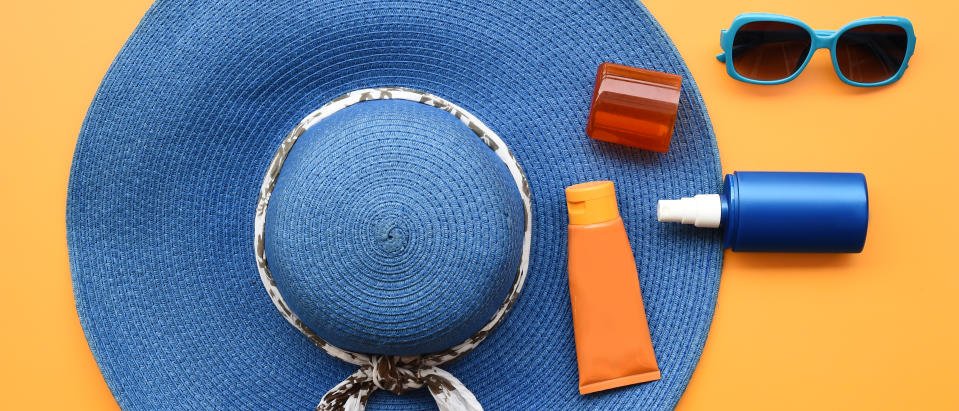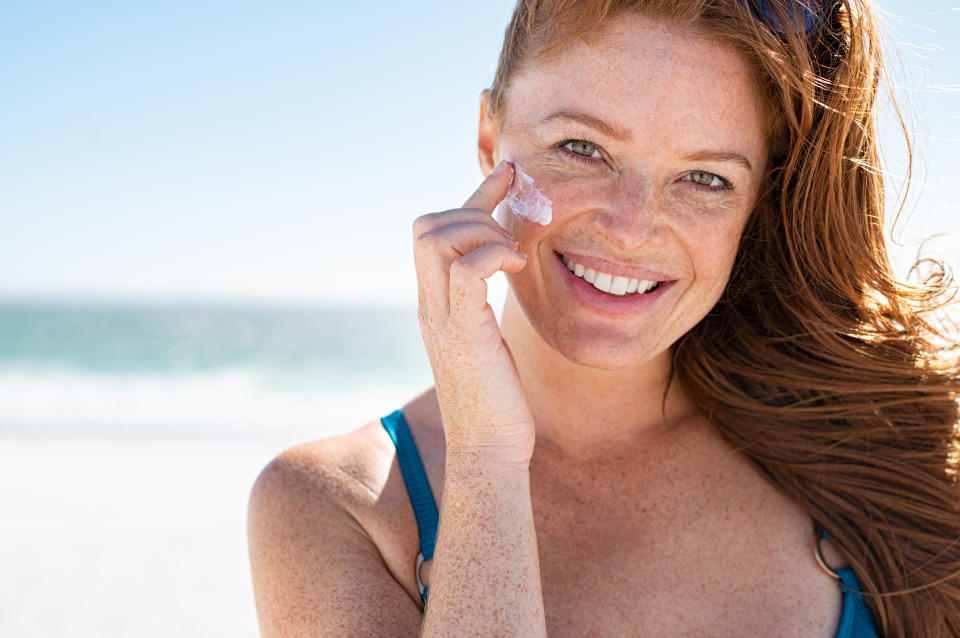'Most sunscreens are dangerous': Pete Evans speaks on new study, but experts say keep up the SPF

Pete Evans has shared a number of his more controversial views to Instagram in the wake of a US study finding mainstream sunscreens may need further safety testing.
The study from the FDA’s Center for Drug Evaluation and Research was published on January 21, and found key ingredients in most sunscreens are absorbed into the bloodstream and must be tested more completely to determine the safety of the absorption.
While the study specifies that ‘these findings do not indicate that individuals should refrain from the use of sunscreen’, wellness advocates like Pete Evans have taken to social media to share the study.
A post shared by Pete Evans (@chefpeteevans) on
“Approximately 4 years ago I stated that most sunscreens were dangerous and the mainstream media went on a witch-hunt to ridicule me, even though I said we use non-toxic sunscreen,” the chef captioned a screenshot of the Daily Mail’s report on the study.
Non-toxic sunscreens include protection commonly known as ‘zinc’ which provides a physical barrier between skin and the sun.
“It is amazing how things turn around,” the controversial wellness advocate noted.
Pete Evans has been contacted for comment.
What the study found

Skin Cancer Committee Chair Heather Walker told Yahoo Lifestyle the study means sunscreens need to be further tested, but is no reason to put down the SPF.
“The researchers behind this study concluded the results should not discourage people from using sunscreen,” she pointed out.
“Evidence shows sunscreen prevents skin cancer, including the deadliest form, melanoma. Cancer Council, therefore, encourages Australians to continue to use sunscreen alongside clothing, hats, shade and sunglasses for the best sun protection.”
She also pointed out that in Australia, the Therapeutic Goods Administration ensures sunscreens on our market are ‘safe and effective’.
Dr Jane Woodcock, director of the group behind the study, backed up this reasoning, explaining to CNN that the ingredients being absorbed into the bloodstream does not necessarily mean they are harmful.
“Rather, this finding calls for further industry testing to determine the safety and effect of systemic exposure of sunscreen ingredients, especially with chronic use," Dr Woodcock told the site.
The study examining found chemicals used in sunscreens were absorbed into the bloodstream at rates beyond what is considered automatically safe by a major health organisation.
In other words, a certain low amount of an ingredient being absorbed into the skin waives the need for safety testing, but in this case, the amount exceeds the exempt threshold.
The study found sunscreens, therefore, need more safety testing than has previously been applied, but is still considered a safe form of sun protection.
The study

The study of 48 participants found six tested ingredients present in four different sunscreens systemically absorbed in quantities higher than the US Food and Drug Administration's threshold.
Ingredients called avobenzone, oxybenzone, octocrylene, homosalate, octisalate, and octinoxate, were present in four different sunscreen products including in the form of lotion, aerosol spray, non-aerosol spray, and pump spray.
Participants comprised of 24 women and 24 men who were studied throughout a period of 21 days.
The study noted a distinct lack of real-life elements, given that participants were required to stay indoors for its duration, and discussed the need for further research in the area.
It also explained the “findings do not indicate that individuals should refrain from the use of sunscreen”.
Pete lifts the lid

The celebrity chef took the news as an opportunity to remind followers of other ideas he has spruiked that have raised eyebrows.
They include the belief that fluoride added to our water is poison and that the nutritional safety guidelines push an unspecified religious agenda.
“The dietary guidelines have been created to push a religious agenda and promote multinational food companies,” the chef wrote.
“Cannabis will be decriminalised and we can grow it in our gardens, many pharmaceuticals, including statins are detrimental to long term health... added toxic fluoride to the water supply is a poison.”
“WE ARE THE MEDICINE AND WE ARE LOVE,” he signed the message off.
Pete made headlines last week when he posed with, and linked out to the website of prolific anti-vaxxer Robert F Kennedy.
Fans threatened to boycott MKR, Pete’s Channel Seven show, over the controversy, through Seven said in a statement that the chef is not anti-vax.
Pete Evans did not respond to requests for comment at the time.
Got a story tip or just want to get in touch? Email us at lifestyle.tips@verizonmedia.com

 Yahoo Lifestyle
Yahoo Lifestyle 



